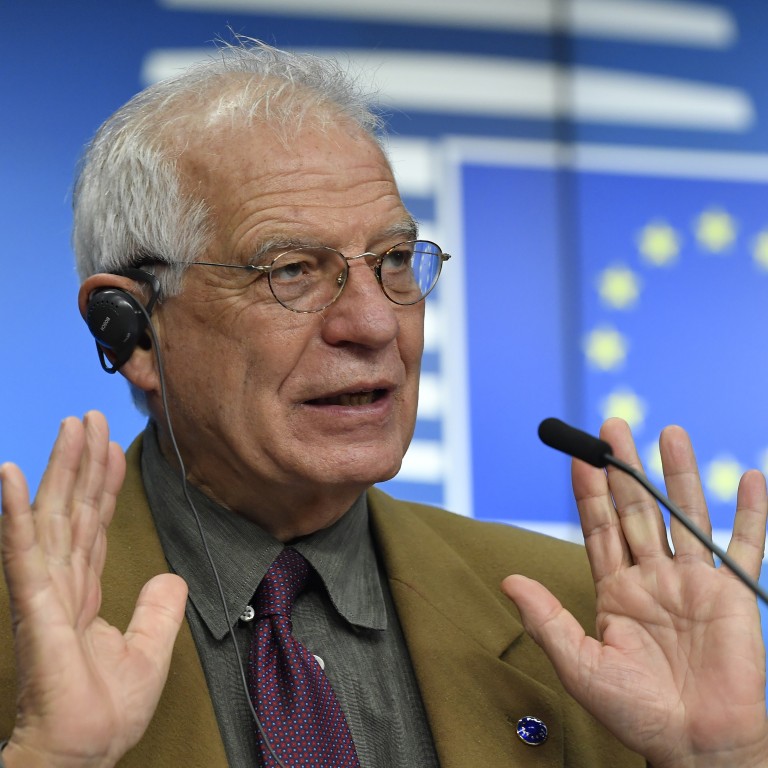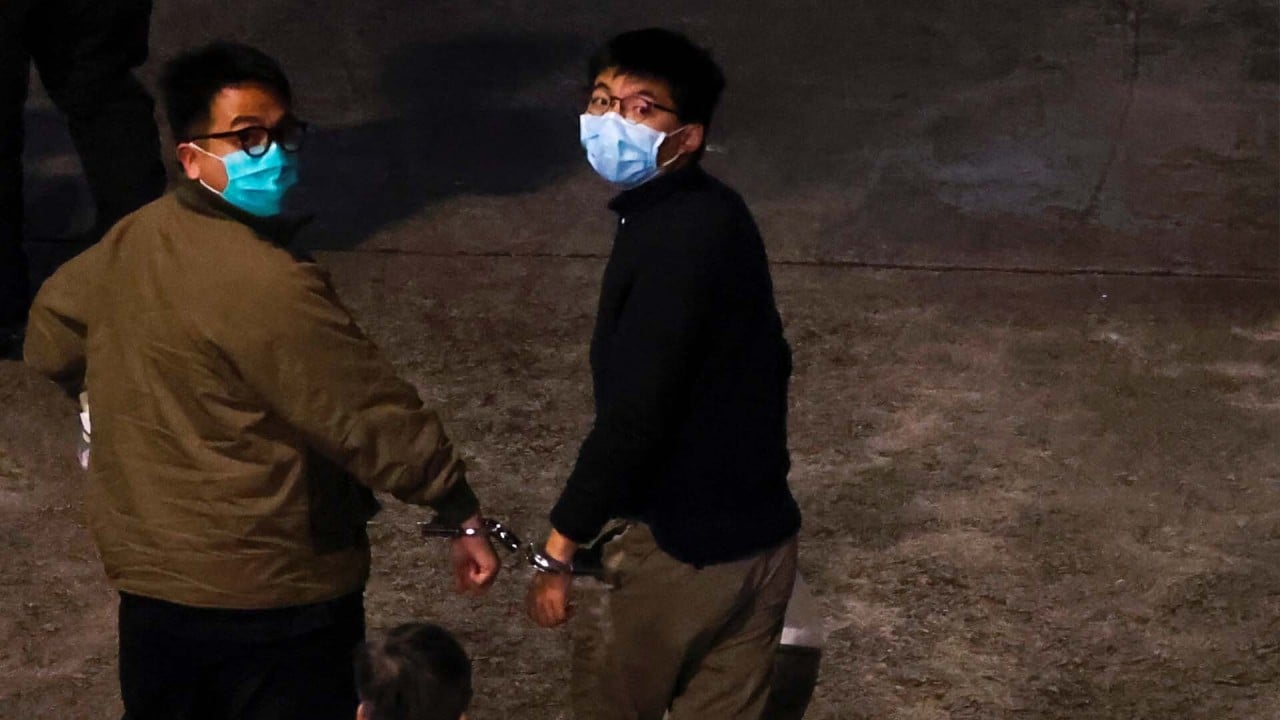
EU and Britain decline, for now, to sanction Chinese officials involved in Hong Kong and Xinjiang actions
- European Union introduces a human rights sanctions programme, but foreign policy head avoids saying if it will be used against Beijing officials
- British minister for Asia, during parliament discussion of Hong Kong activist Joshua Wong’s imprisonment, says only that evidence is being collected
The European Union and Britain each on Monday ruled out immediate moves to impose sanctions on Chinese officials involved in what they called human rights violations in Hong Kong and Xinjiang – even as the US added new ones.
The EU Introduced what it called a “global human rights sanctions regime” – an institutional process that will let it target individuals, entities, states and non-state actors “responsible for, involved in or associated with serious human rights violations and abuses worldwide”, according to a statement.
But in his discussion of the programme, the EU’s foreign policy chief Josep Borrell repeatedly avoided saying whether he would act on a previous pledge to use the new legal power to punish Chinese officials who have suppressed Uygur Muslims in Xinjiang.
“Sanctions are triggered when a member state puts a proposal. For the time being no one has done it,” Borrell said, without acknowledging that the programme also empowered him to propose sanctions.

01:24
Hong Kong leader Carrie Lam says she gets around sanctions by collecting her salary in cash
On Monday the United States imposed financial sanctions and a travel ban on 14 Chinese legislators over their involvement in the imposition this summer of a national security law in Hong Kong, which aims to prevent, stop and punish acts identified as secession, subversion of state power, terrorism and foreign interference. Opposition politicians and critics warn it could be used to suppress dissent and erode freedom in the city.
In August the US first assessed sanctions on Hong Kong Chief Executive Carrie Lam Cheng Yuet-ngor, as well as the city’s current and former police chiefs and other top officials for what it said were their roles in curtailing freedoms in a crackdown on the territory’s pro-democracy movement.
US sanctions top Chinese legislators for national security law on Hong Kong
On Monday, the EU announced no new measures against the Chinese and Hong Kong authorities. A high-level EU official who spoke on condition of anonymity said the union would wait to see how judges in Hong Kong’s justice system would treat national security suspects once the cases are brought to the courts.
The foreign ministers of the EU’s 27 member states, Borrell said, “considered [that] the situation has been deteriorating and the situation continues to deteriorate”.
“No further measures have been taken today, which doesn’t exclude that they could be considered later,” he added.

01:24
Hong Kong activists Joshua Wong and Ivan Lam jailed, Agnes Chow to spend 24th birthday in prison
In Britain, the government also refused to “speculate” whether Hong Kong or Beijing officials would be added to its sanction list, saying that evidence was still being collected.
“We are carefully considering further designations,” Nigel Adams, Britain’s minister for Asia, told parliament during a discussion of the imprisonment last week of Joshua Wong, a Hong Kong student protester who was sentenced to more than a year in prison.
“It is inappropriate to second-guess who may be designated in the future. If you do so, it could reduce their impact.”
Hong Kong police freeze bank accounts of fugitive ex-lawmaker Ted Hui’s family
Despite lawmakers’ insistence, Adams also declined to condemn HSBC, the British bank that some lawmakers criticised for freezing the accounts of pro-democracy figures, including the former lawmaker Ted Hui, who fled to Britain last week while facing charges related to the anti-government protests.
The HSBC “benefits from its location here in London … and behaves in this disreputable and appalling way” in Hong Kong, former Conservative Party chairman Iain Duncan Smith said.

